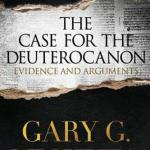1 Corinthians 3:12-15 (RSV) Now if any one builds on the foundation with gold, silver, precious stones, wood, hay, straw — [13] each man’s work will become manifest; for the Day will disclose it, because it will be revealed with fire, and the fire will test what sort of work each one has done. [14] If the work which any man has built on the foundation survives, he will receive a reward. [15] If any man’s work is burned up, he will suffer loss, though he himself will be saved, but only as through fire.
Reformed Baptist apologist James White recently engaged in a debate with Catholic apologist Trent Horn, on the topic of purgatory (2-17-24). In his usual “post-mortem” remarks on that exchange: a Dividing Line episode called “Road Trip Morning Dividing Line” (2-22-24), White stated at 37:35:
One of the glaring errors in Rome’s abuse of 1 Corinthians chapter 3 is the fact that “the day will show it.” In Paul’s language there the day is obviously the day of the Lord. It’s the final day of of judgment, but Purgatory doesn’t take place [on] the final day of judgment. Purgatory takes place before then; it takes place as soon as someone dies, and so how can that be relevant . . .?
Well, White assumes that it is the Day of the Lord; i.e., the final judgment, occurring shortly after the Second Coming. But not all Protestant commentators or biblical linguistic scholars agree with that, by any stretch.
Benson Commentary states that “especially the day of final judgment, the great day of the Lord, is here intended,” but it also includes other strains of meaning here that might be seen to include a time other than the day of judgment:
Perhaps, 1st, η ημερα δηλωσει, might be rendered, time will declare it; for time, generally a little time, manifests whether a minister’s doctrine be Scriptural and sound, and his converts genuine or not. If his preaching produce no saving effect upon his hearers, if none of them are reformed in their manners, and renewed in their hearts; if none of them are turned from sin to righteousness, and made new creatures in Christ Jesus, there is reason to suspect the doctrine delivered to them is not of the right kind, and therefore is not owned of God. 2d, The expression means, The day of trial shall declare it; (see 1 Peter 4:12 [“do not be surprised at the fiery ordeal which comes upon you to prove you”]) for a day of trial is wont to follow a day of merciful visitation; . . .
Barnes’ Notes on the Bible similarly observes:
Perhaps the word “day” here may mean time in general, as we say, “time will show” – and as the Latin adage says, dies docebit; but it is more natural to refer it to the Day of Judgment.
Matthew Poole’s Commentary is even more “broad-minded”:
For the day shall declare it: what day shall declare it is not so steadily agreed by interpreters. Some by a day here understand a long time, in process of time it shall be declared; . . . Others understand it of a day of adversity and great affliction, the day of God’s vengeance; . . . Others understand by the day here mentioned, the day of judgment, which is indeed often called the day of the Lord, 1 Corinthians 1:8, and described by fire, Joel 2:3 2 Thessalonians 1:8 2 Peter 3:10; but this text saith not the day of the Lord, but only the day.
for the day shall declare it; meaning not the day of judgment, though that is often called the day, or that day, and will be attended with fire, and in it all secrets shall be made manifest; but the apostle intends a discovery that will be made of doctrines in this world, before that time comes: wherefore this day rather designs a day of tribulation; as of persecution, which tries men’s principles, whether they are solid or not; and of error and heresy, when men are put upon a re-examination of their doctrines, whereby persons and truths that are approved are made manifest . . .
Meyer’s NT Commentary holds that it refers to the day of judgment, but notes that there are other opinions, too:
The following expositions are alien to the succeeding context: of time in general (. . . —so Grotius, Wolf, Wetstein, Stolz, Rosenmüller, Flatt, and others); or of the time of clear knowledge of the gospel (Erasmus, Beza, Calvin, Vorstius) . . .
Henry Alford, in his Greek Testament Critical Exegetical Commentary, also thinks it is judgment day, but notes differing views among commentators:
(1) ‘the day of the destruction of Jerusalem,’ which shall shew the vanity of Judaizing doctrines: so Hammond (but not clearly nor exclusively), Lightfoot., Schöttg., . . . (2) ‘the lapse of time,’ as in the proverb, ‘dies docebit;’—so Grot., Wolf, Mosheim, Rosenm., . . . (3) ‘the light of day,’ i.e. of clear knowledge, as opposed to the present time of obscurity and night: so Calvin, Beza, Erasmus . . . (4) ‘the day of tribulation:’—so Augustine, . . .
Obviously, then, there is not one sole interpretation held by one and all, as White seems to casually assume. White’s take is the leading one among Protestants, but not the only one; so it’s not written in stone like the Ten Commandments. The Catholic Navarre Commentary states:
Although St. Paul does not make explicit mention of any judgment but this Last Judgment when Jesus “shall come to judge the living and the dead” (Apostle’s Creed), obviously — as the Church has always believed — there is also a judgment “immediately after death” (Benedict XII, Benedictus Deus, Dz-Sch, 1000). It is described as the “particular” or individual judgment because “when each one of us departs this life, he is instantly placed before the judgment seat of God, where all that he has ever done or spoken or thought during life shall be subjected to the most rigid scrutiny” (St. Pius V Catechism, I, 8, 3).
The Catholic Encyclopedia (“Particular Judgment”) explains this doctrine:
Existence of particular judgment proved from Scripture
Ecclesiastes 11:9; 12:1 sq.; and Hebrews 9:27, are sometimes quoted in proof of the particular judgment, but though these passages speak of a judgment after death, neither the context nor the force of the words proves that the sacred writer had in mind a judgment distinct from that at the end of the world. The Scriptural arguments in defence of the particular judgment must be indirect. There is no text of which we can certainly say that it expressly affirms this dogma but there are several which teach an immediate retribution after death and thereby clearly imply a particular judgment. Christ represents Lazarus and Dives [Luke 16:19 ff.] as receiving their respective rewards immediately after death. They have always been regarded as types of the just man and the sinner. To the penitent thief it was promised that his soul instantly on leaving the body would be in the state of the blessed: “This day thou shalt be with me in Paradise” (Luke 23:43). St. Paul (2 Corinthians 5) longs to be absent from the body that he may be present to the Lord, evidently understanding death to be the entrance into his reward (cf. Philemon 1:21 sq.). Ecclesiasticus 11:28-29 speaks of a retribution at the hour of death, but it may refer to a temporal punishment, such as sudden death in the midst of prosperity, the evil remembrance that survives the wicked or the misfortunes of their children. However, the other texts that have been quoted are sufficient to establish the strict conformity of the doctrine with Scripture teaching. (Cf. Acts 1:25; Apocalypse 20:4-6, 12-14).
[Dave: Luke 16:25 But Abraham said, `Son, remember that you in your lifetime received your good things, and Laz’arus in like manner evil things; but now he is comforted here, and you are in anguish.
2 Corinthians 5:8, 10 We are of good courage, and we would rather be away from the body and at home with the Lord. . . . [10] For we must all appear before the judgment seat of Christ, so that each one may receive good or evil, according to what he has done in the body.
Revelation 20:4 Then I saw thrones, and seated on them were those to whom judgment was committed. Also I saw the souls of those who had been beheaded for their testimony to Jesus and for the word of God, and who had not worshiped the beast or its image and had not received its mark on their foreheads or their hands. They came to life, and reigned with Christ a thousand years. (this was before the “great white throne” judgment on Judgment Day: see Rev 20:7, 11-15) ]
Patristic testimony regarding particular judgment
St. Augustine witnesses clearly and emphatically to this faith of the early Church. Writing to the presbyter Peter, he criticizes the works of Vincentius Victor on the soul, pointing out that they contain nothing except what is vain or erroneous or mere commonplace, familiar to all Catholics. As an instance of the last, he cites Victor’s interpretation of the parable of Lazarus and Dives. He writes:
For with respect to that which he [Victor] most correctly and very soundly holds, namely, that souls are judged when they depart from the body, before they come to that judgment which must be passed on them when reunited to the body and are tormented or glorified in that same flesh which they here inhabited — was that a matter of which you (Peter) were unaware? Who is so obstinate against the Gospel as not to perceive those things in the parable of that poor man carried after death to Abraham’s bosom and of the rich man whose torments are set before us? (De anima et ejus origine, 11, n.8.)
In the sermons of the Fathers occur graphic descriptions of the particular judgment (cf. S. Ephraem, “Sermo de secundo Adventu”; “Sermo in eos qui in Christo obdormiunt”).
St. Paul writes that “we shall all stand before the judgment seat of God . . . each of us shall give account of himself to God” (Rom 14:10, 12).
See also, Wikipedia, “Particular Judgment,” which provides scriptural and patristic indications.
Related Reading
***
*
Practical Matters: Perhaps some of my 4,500+ free online articles (the most comprehensive “one-stop” Catholic apologetics site) or fifty-five books have helped you (by God’s grace) to decide to become Catholic or to return to the Church, or better understand some doctrines and why we believe them.
Or you may believe my work is worthy to support for the purpose of apologetics and evangelism in general. If so, please seriously consider a much-needed financial contribution. I’m always in need of more funds: especially monthly support. “The laborer is worthy of his wages” (1 Tim 5:18, NKJV). 1 December 2021 was my 20th anniversary as a full-time Catholic apologist, and February 2022 marked the 25th anniversary of my blog.
PayPal donations are the easiest: just send to my email address: [email protected]. Here’s also a second page to get to PayPal. You’ll see the term “Catholic Used Book Service”, which is my old side-business. To learn about the different methods of contributing (including Zelle), see my page: About Catholic Apologist Dave Armstrong / Donation Information. Thanks a million from the bottom of my heart!
*
***
Photo credit: YouTube image from “Gold Refined by Fire Pt. 2” (April 16, 2023); The LifeMission Channel.
Summary: Baptist apologist James White argues that “the Day” in 1 Corinthians 3:13 refers to the Day of the Lord (the Last Judgment). I argue that it’s the particular judgment.














